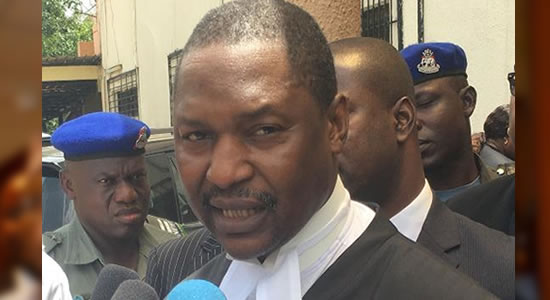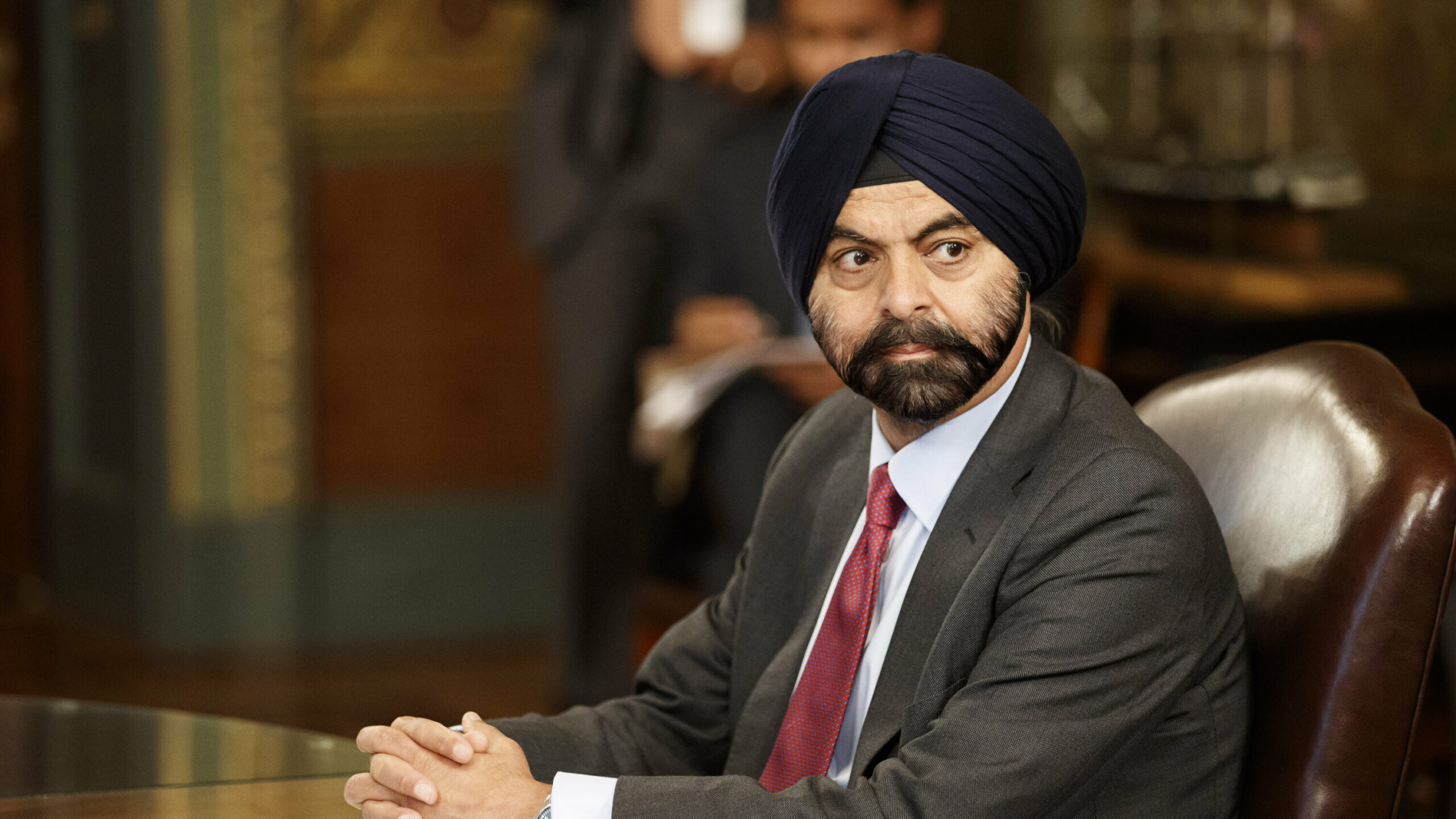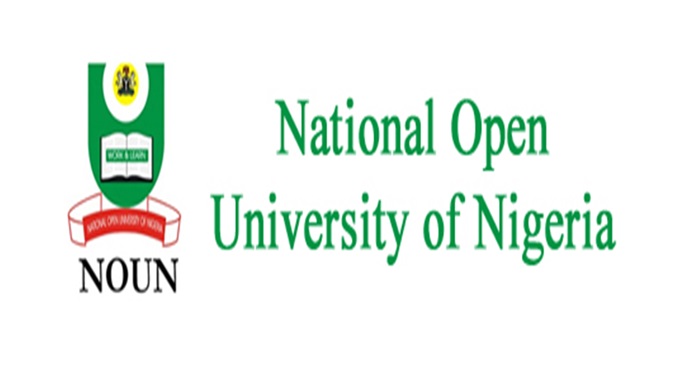The Attorney General of the Federation and Minister of Justice, Abubakar Malami, SAN, has accused the Economic and Financial Crimes Commission (EFCC), led by Ibrahim Magu, of frustrating the Federal Government’s anti-graft war. The revelation was made in an article, 'EFCC ignoble role that led to Nigeria’s Egmont suspension', made available to vigil360 and published by Comrade Salihu Othman Isah, the Special Adviser, Media and Publicity, Office of the Honourable Attorney General of the Federation and Minister of Justice, Abuja.
Mr Isah revealed that the Office of the Attorney General of the Federation and Minister of Justice, through a memo numbered HAGF/SH/2016/Vol.1/2 sent to President Muhammadu Buhari dated 5th January, 2016 and titled, ‘Request to Transmit Two (2) Bills to the National Assembly’ referred Mr. President to the bills.
Abubakar Malami, SAN reminded the President that the bills, “were earlier passed by the 7th National Assembly and forwarded for Presidential Assent, viz: Proceed of Crime Bill; and Nigeria Financial Intelligence Centre Bill, 2015.”
The memo continued that, “In view of the fact that the thirty (30) days time limit permitted under Section 58 (5) of the Constitution for assent to a Bill has expired, I respectfully wish to request Mr. President to re-transmit the Bills to the 8th Assembly for accelerated hearing, as may be permitted by its Rules. I have reviewed the two Bills which are Executive Bills and can confirm that they are consistent with the agenda of the present administration.
According to the Attorney General of the Federation, “The two Bills have been prioritized because they will support the fight against corruption, money laundering, terrorism, kidnapping, oil theft and a host of other crimes that are related to financial crimes. They will also enhance the legal measures for the recovery and management of stolen asset and ensure that all assets are recovered from within Nigeria and outside Nigeria in a prompt manner.”
The memo signed by the AGF with the two Bills attached, dispatched and acknowledged same day by the presidency had as prayers that, “In the light of the above, Your Excellency is graciously invited to re-transmit the above-mentioned two Bills to the National Assembly for consideration and passage, please”, it concluded.
It would be recalled that at its 24th Plenary of the Egmont Group held in Macao, a Chinese Special Administrative Region (SAR) from July 2-7, 2017, chaired by Mr. Sergio Espinosa, chair of the Egmont Group, Nigeria was suspended from the group for flouting it’s laid down rules and regulations.
The group at the meeting where about 354 participants representing 112 Financial Intelligence Units were in attendance particularly reprimanded Nigeria, for lack of the independence of the Nigeria Financial Intelligence Unit (NFIU) from the Economic and Financial Crimes Commission (EFCC).
Special Adviser to the AGF, further stated that there are several other documents detailing the commitment of the AGF and the Federal Ministry of Justice to ensure that Nigeria is fully ratified as a bona fide member of the Egmont Group and other international anti-graft bodies in line with the Buhari administration’s effort to combat all corruption and other forms of crimes.
However, he wrote, "it is sad tale to tell how the Acting Chairman, Ibrahim Magu-led EFCC has frustrated these efforts and even had to resort to blackmail in some instances oftentimes, alleging that the AGF and the Ministry were all out to impede the government’s anti-corruption drive. Magu and other EFCC officials; and atimes through online publications; had at one time or the other accused the Minister of trying to compromise the war. They have always perceived the Office of AGF as a threat instead of addressing the issues related to the best strategy to fight corruption advocated by the AGF."
He continued: "For instance, during the House of Representatives Committee review session on 18th April, 2017, Magu vehemently rejected the new Money Laundering (Prevention and Prohibition Bill 2016 submitted by the President; which according to him, as reported by some national dailies; might prejudice President Muhammadu Buhari’s anti-corruption agenda. He even went on his whimsical best by surmising that passing the bill into law now will affect Nigeria’s application for the membership of the Financial Action Task Force (FATF). What parody!
"In likewise, the EFCC is now in a state of paranoia, as it dreads the effort of the government to have an independent NFIU which it has stood against stoically since 2006. As it presently stands, the NFIU staff are all deployed by the EFCC to serve in the interest of whoever is its current Chairman. This has to stop if it must conform to the new thinking and global best practice. Nigeria cannot be an island of its own. It cannot fight corruption in isolation. The threat of expulsion from the Egmont Group calls for a thorough review of the NFIU and the manner in which the EFCC leadership has manipulated and mis-used intelligence to the detriment of the fight against corruption and financial crime in Nigeria."
Comrade Isah stated that to achieve the desired goal, NFIU needs to stand alone as an Agency with full complements of power to recruit its staff and an annual budgetary allocation guaranteed for its operations.
"Its independence must be ascertained in the new law to set up Nigerian Financial Intelligence Agency (NFIA) to enable it carry out its mandate which shall include responsibilities for receiving, requesting, analysing and disseminating financial intelligence reports on money laundering, terrorist financing and other relevant information to law enforcement, security and intelligence agencies, and other relevant authorities."
It was learnt that the senate has passed the Bill passed.
The Bill passed by the senate states as follows:
There is established a body to be known as the Nigerian Financial Intelligence Agency (in this Bill referred to as “the Agency”) which shall be the central body in Nigeria responsible for receiving, requesting, analysing and disseminating financial intelligence reports on money laundering, terrorist financing and other relevant information to law enforcement, security and intelligence agencies, and other relevant authorities.
(2) The Agency –
(a) is a body corporate with perpetual succession and a common seal and may sue and be sued in its corporate name;
(b) may, for the performance of its functions, acquire, mortgage, hold and deal howsoever with movable and immovable property and may enter into a contract or any other transaction; and
(c) shall be independent in the discharge of its duties and functions under this Bill and for that purpose shall not take directives from any person or authority.
(3) For purposes of institutional location and logistical support, the Agency shall be domiciled in the Central Bank of Nigeria.
The AGF therefore urges the House of Representatives under the leadership of Mr. Yakubu Dogara to take a bold step by taking a cue from the Senate by passing the Bill as soon as they return from their break.
"This patriotic move will ensure that Nigeria is not scorned in the international community in view of the possible Egmont group expulsion staring it on the face", Malami stated.
As a result of the new occurrences in global circle, it is pertinent that the EFCC cannot continue to be dogmatic on its stand. It can’t shy away from the needful. The current reality is that, Nigeria must not remain a pariah in the anti-corruption space. This is very germane at this point.
"The current reality is that, Nigeria must not remain a pariah in the anti-corruption space", he concluded.




















